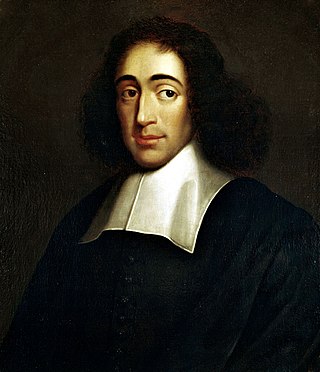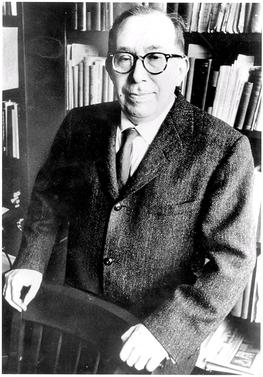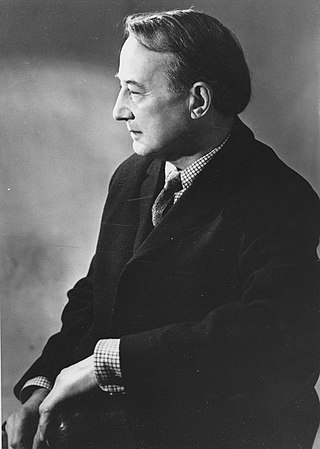This is a list of the published works of English philosopher Roger Scruton.
This is a list of the published works of English philosopher Roger Scruton.
Aesthetics is the branch of philosophy concerned with the nature of beauty and the nature of taste; and functions as the philosophy of art. Aesthetics examines the philosophy of aesthetic value, which is determined by critical judgements of artistic taste; thus, the function of aesthetics is the "critical reflection on art, culture and nature".

Baruch (de) Spinoza, also known under his Latinized pen name Benedictus de Spinoza, was a philosopher of Portuguese-Jewish origin. As a forerunner of the Age of Reason, Spinoza significantly influenced modern biblical criticism, 17th-century Rationalism, and contemporary conceptions of the self and the universe, establishing himself as one of the most important and radical philosophers of the early modern period. He was influenced by Stoicism, Maimonides, Niccolò Machiavelli, René Descartes, Thomas Hobbes, and a variety of heterodox Christian thinkers of his day.

Gilles Louis René Deleuze was a French philosopher who, from the early 1950s until his death in 1995, wrote on philosophy, literature, film, and fine art. His most popular works were the two volumes of Capitalism and Schizophrenia: Anti-Oedipus (1972) and A Thousand Plateaus (1980), both co-written with psychoanalyst Félix Guattari. His metaphysical treatise Difference and Repetition (1968) is considered by many scholars to be his magnum opus.
In philosophy, rationalism is the epistemological view that "regards reason as the chief source and test of knowledge" or "any view appealing to reason as a source of knowledge or justification", often in contrast to other possible sources of knowledge such as faith, tradition, or sensory experience. More formally, rationalism is defined as a methodology or a theory "in which the criterion of truth is not sensory but intellectual and deductive".

Leo Strauss was a 20th century German-American scholar of political philosophy. Born in Germany to Jewish parents, Strauss later emigrated from Germany to the United States. He spent much of his career as a professor of political science at the University of Chicago, where he taught several generations of students and published fifteen books.

Michael Joseph Oakeshott FBA was an English philosopher and political theorist who wrote on the philosophies of history, religion, aesthetics, education, and law.

Persecution and the Art of Writing, published in 1952 by the Free Press, is a book of collected articles written by Leo Strauss. The book contains five previously published essays, many of which were significantly altered by Strauss from their original publication:

Sir Roger Vernon Scruton, was an English philosopher, writer, and social critic who specialised in aesthetics and political philosophy, particularly in the furtherance of traditionalist conservative views.

Leszek Kołakowski was a Polish philosopher and historian of ideas. He is best known for his critical analyses of Marxist thought, such as in his three-volume history of Marxist philosophy Main Currents of Marxism (1976). In his later work, Kołakowski increasingly focused on religious questions. In his 1986 Jefferson Lecture, he asserted that "we learn history not in order to know how to behave or how to succeed, but to know who we are".

Aesthetics of music is a branch of philosophy that deals with the nature of art, beauty and taste in music, and with the creation or appreciation of beauty in music. In the pre-modern tradition, the aesthetics of music or musical aesthetics explored the mathematical and cosmological dimensions of rhythmic and harmonic organization. In the eighteenth century, focus shifted to the experience of hearing music, and thus to questions about its beauty and human enjoyment of music. The origin of this philosophic shift is sometimes attributed to Baumgarten in the 18th century, followed by Kant.

A History of Western Philosophy is a 1946 book by British philosopher Bertrand Russell (1872–1970). A survey of Western philosophy from the pre-Socratic philosophers to the early 20th century, each major division of the book is prefaced by an account of the historical background necessary to understand the currents of thought it describes. When Russell was awarded the Nobel Prize for Literature in 1950, A History of Western Philosophy was cited as one of the books that won him the award. Its success provided Russell with financial security for the last part of his life. The book was criticised, however, for over-generalizations and omissions, particularly from the post-Cartesian period, but nevertheless became a popular and commercial success, and has remained in print from its first publication.
The argument from love is an argument for the existence of God that suggests the depth, complexity, and universality of love point to a transcendent source or purpose.
Philosophy of music is the study of "fundamental questions about the nature and value of music and our experience of it". The philosophical study of music has many connections with philosophical questions in metaphysics and aesthetics. The expression was born in the 19th century and has been used especially as the name of a discipline since the 1980s.
Traditionalist conservatism, often known as classical conservatism, is a political and social philosophy that emphasizes the importance of transcendent moral principles, manifested through certain posited natural laws to which it is claimed society should adhere. It is one of many different forms of conservatism. Traditionalist conservatism, as known today, is based on Edmund Burke's political views as well as the views of Joseph de Maistre. Traditionalists value social ties and the preservation of ancestral institutions above what they perceive as excessive individualism. One of the first uses of the phrase "conservatism" began around 1818 with a monarchist newspaper named "Le Conservateur", written by Francois Rene de Chateaubriand with the help of Louis de Bonald.
Philosophers throughout the history of philosophy have been held in courts and tribunals for various offenses, often as a result of their philosophical activity, and some have even been put to death. The most famous example of a philosopher being put on trial is the case of Socrates, who was tried for, amongst other charges, corrupting the youth and impiety.
This is a list of philosophical literature articles.

Mark Dooley is an Irish philosopher, writer and newspaper columnist. A specialist in continental philosophy, theology and the philosophy of religion, he is the author of several books, including The Politics of Exodus: Kierkegaard's Ethics of Responsibility (2001), Roger Scruton: The Philosopher of Dover Beach (2009), and Why Be a Catholic? (2011).

Conservatism: An Invitation to the Great Tradition is a 2017 book by English philosopher Roger Scruton, in which the author outlines the development of modern conservatism. It is intended as an introduction to conservatism, with the author stating, "I have written this book in the hope of encouraging well-meaning liberals to take a look at what [the] arguments [for conservatism] really are”.

A Short History of Modern Philosophy: From Descartes to Wittgenstein is a 1982 book by the English philosopher Roger Scruton, in which the author provides a history of modern philosophy. The second revised and enlarged edition was published in 1995. Scruton examines the thoughts of Descartes, Spinoza, Leibniz, Hobbes, Locke, Berkeley, Hume, Kant, Hegel, Schopenhauer, Kierkegaard, Marx, Nietzsche, Mill, Frege, Husserl, Heidegger and Wittgenstein among others.